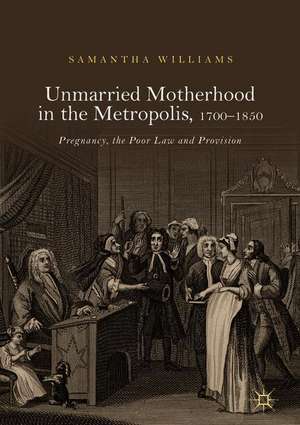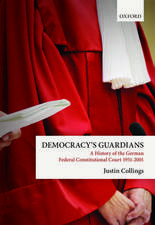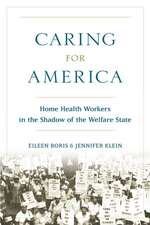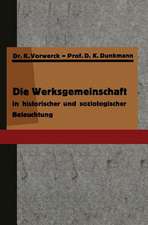Unmarried Motherhood in the Metropolis, 1700–1850: Pregnancy, the Poor Law and Provision
Autor Samantha Williamsen Limba Engleză Hardback – 4 mai 2018
| Toate formatele și edițiile | Preț | Express |
|---|---|---|
| Paperback (1) | 724.17 lei 6-8 săpt. | |
| Springer International Publishing – feb 2019 | 724.17 lei 6-8 săpt. | |
| Hardback (1) | 729.36 lei 6-8 săpt. | |
| Springer International Publishing – 4 mai 2018 | 729.36 lei 6-8 săpt. |
Preț: 729.36 lei
Preț vechi: 889.47 lei
-18% Nou
Puncte Express: 1094
Preț estimativ în valută:
139.57€ • 144.20$ • 116.10£
139.57€ • 144.20$ • 116.10£
Carte tipărită la comandă
Livrare economică 19 martie-02 aprilie
Preluare comenzi: 021 569.72.76
Specificații
ISBN-13: 9783319733197
ISBN-10: 3319733192
Pagini: 260
Ilustrații: XV, 270 p. 7 illus.
Dimensiuni: 148 x 210 x 22 mm
Greutate: 0.49 kg
Ediția:1st ed. 2018
Editura: Springer International Publishing
Colecția Palgrave Macmillan
Locul publicării:Cham, Switzerland
ISBN-10: 3319733192
Pagini: 260
Ilustrații: XV, 270 p. 7 illus.
Dimensiuni: 148 x 210 x 22 mm
Greutate: 0.49 kg
Ediția:1st ed. 2018
Editura: Springer International Publishing
Colecția Palgrave Macmillan
Locul publicării:Cham, Switzerland
Cuprins
1. Introduction: illegitimacy in London .- 2. Shame.- 3. Pregnant and birthing bodies.- 4. The workhouse.- 5. Maintenance.- 6. Punishment.- 7. Conclusion.- Notes.- Bibliography.-Index.
Recenzii
“Samantha Williams presents a clearly written, well-structured insight into unmarried mothers’ experience of poor relief in eighteenth and early-nineteenth century London. … Williams has produced useful and detailed data on the mechanisms of filiation and provision for illegitimate children and provided compelling evidence of the multiple demands that faced parishes in this period.” (Kate Gibson, Family & Community History, Vol. 21 (3), 2018)
Notă biografică
Samantha Williams is Senior Lecturer in Local and Regional History at the University of Cambridge, UK. She has published widely on the history of poverty and the poor law, including Poverty, Gender and Life-Cycle under the English Poor Law, 1760-1834 (2011) and Illegitimacy in Britain, 1700-1920 (2005) which she co-edited with Alysa Levene and Thomas Nutt.
Textul de pe ultima copertă
In this book Samantha Williams examines illegitimacy, unmarried parenthood and the old and new poor laws in a period of rising illegitimacy and poor relief expenditure. In doing so, she explores the experience of being an unmarried mother from courtship and conception, through the discovery of pregnancy, and the birth of the child in lodgings or one of the new parish workhouses. Although fathers were generally held to be financially responsible for their illegitimate children, the recovery of these costs was particularly low in London, leaving the parish ratepayers to meet the cost. Unmarried parenthood was associated with shame and men and women could also be subject to punishment, although this was generally infrequent in the capital. Illegitimacy and the poor law were interdependent and this book charts the experience of unmarried motherhood and the making of metropolitan bastardy.
Caracteristici
Assesses the economic and emotional experience of unmarried mothers in London from 1700 to 1850 Considers the delivery of poor relief and the system of affiliation which held parents responsible for the maintenance of their illegitimate children Examines the extent to which unmarried parents were shamed by their situation and how this changed over time


















